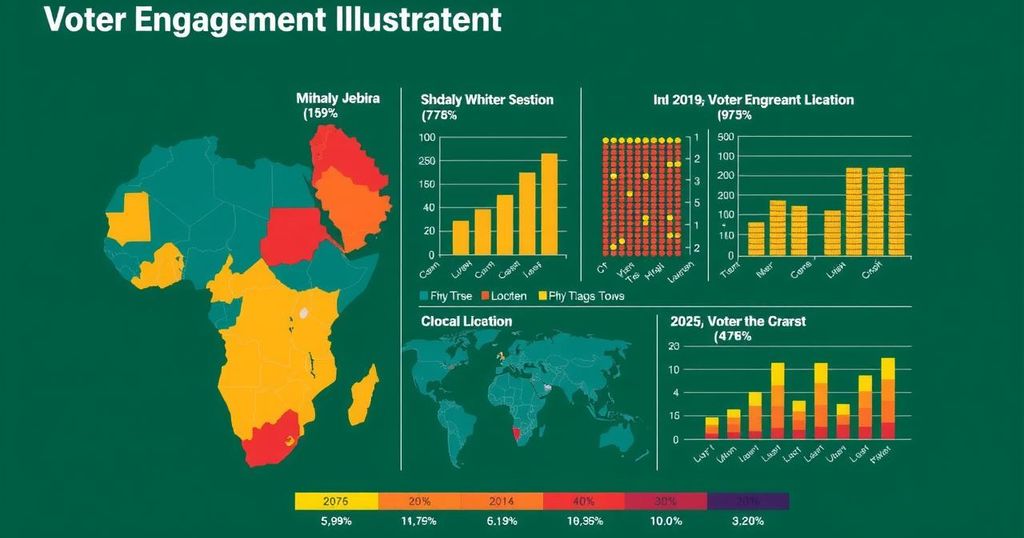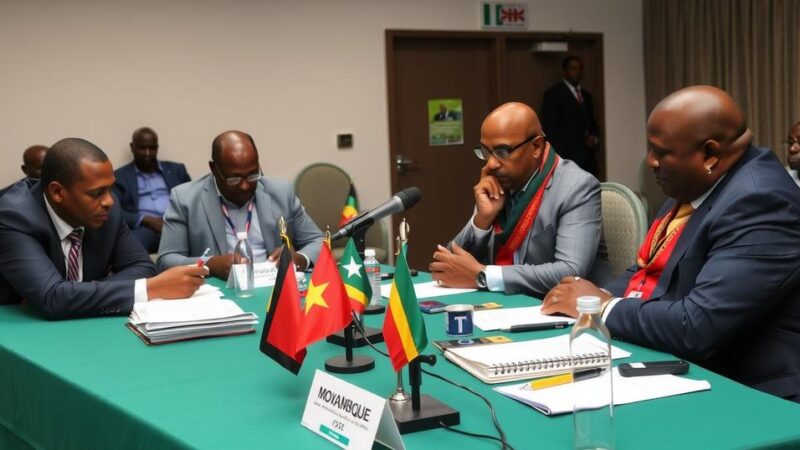Ghana’s impending general election is influential, marked by high inflation peaking at 54.1% in December 2022, rising unemployment, especially among youth, and significant debt management issues. As the NPP seeks a third consecutive term, key voter concerns include the economic crisis and environmental impacts of gold mining. Results are expected within days following the election on December 7, 2023, underlining the importance of youth perspectives on the political landscape.
As Ghana prepares for its ninth general election since the reintroduction of multiparty politics in 1992, the political landscape continues to be dominated by the National Democratic Congress (NDC) and the New Patriotic Party (NPP). Both parties have held power equally for 16 years each, as the NPP seeks a third consecutive term. Current voter concerns are primarily driven by the effects of the global inflation crisis, which began in early 2022, resulting in a peak annual inflation rate of 54.1% in December 2022. Essential goods, like eggs and tomatoes, have faced significant price increases, further straining household budgets and pushing many into poverty, as reported by the World Bank.
Amid economic turmoil, Ghana defaulted on its debt repayments, leading to complicated negotiations with creditors and reliance on the International Monetary Fund for a bailout program. President Nana Akufo-Addo acknowledged the economic crisis yet attributed it largely to external factors, while the opposition criticized the government for mismanagement. The nation’s debt has escalated dramatically, with over 70% of government revenue now directed towards servicing this debt.
Unemployment remains a critical issue, with the rate rising from 5% to approximately 14% in the last two decades, disproportionately affecting the youth. Currently, nearly 30% of young individuals aged 15 to 24 are unemployed, a statistic that could significantly influence the forthcoming election outcome. Additionally, citizens are concerned about the environmental impact of small-scale gold mining, which has gained importance as gold remains one of Ghana’s top foreign exchange earners, complemented by other valuable resources such as oil, diamonds, and cocoa.
Despite these challenges, Ghana has made remarkable progress over the past three decades, reducing extreme poverty by half, and significantly increasing the average income. The political environment has fostered a series of closely contested, peaceful elections, establishing Ghana as a role model for democracy in a region where instability is prevalent. Voter preferences often reflect short-term economic indicators, highlighting the importance of this election on December 7, 2023, where results are anticipated within three days thereafter.
This article discusses the political landscape of Ghana as it approaches its next general elections, focusing on key issues affecting voter sentiment, particularly inflation and economic challenges. Ghana has a history of peaceful transitions of power since the reintroduction of multiparty politics. The country’s economy, impacted by a high debt and unemployment rate, has sparked debates about government performance and the outlook for future generations in a rapidly changing economic context. The youth’s concerns about employment and environmental degradation in resource extraction industries are central to current electoral considerations, which may have significant implications for the election outcomes.
The upcoming election in Ghana is shaped by significant economic concerns, particularly inflation and rising unemployment, which influence voter sentiment. As the NPP seeks to secure a third consecutive term, the outcomes of this election may depend heavily on the perceptions of younger voters facing unique challenges. The election on December 7, 2023, will serve as a critical juncture for assessing the performance of the incumbent government and the direction of Ghana’s democracy, amidst complex social and economic dynamics.
Original Source: www.bbc.com







